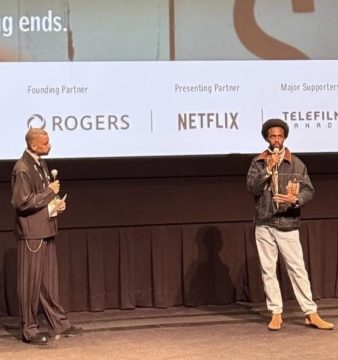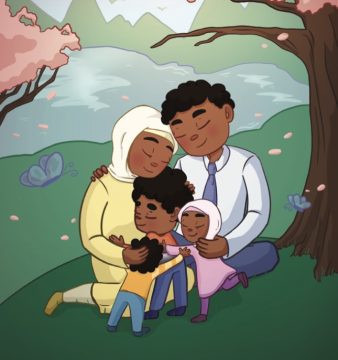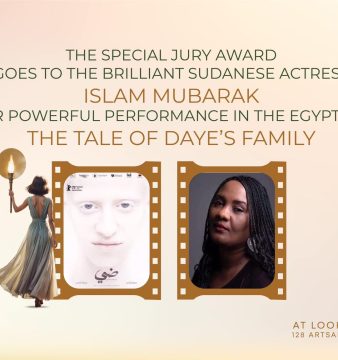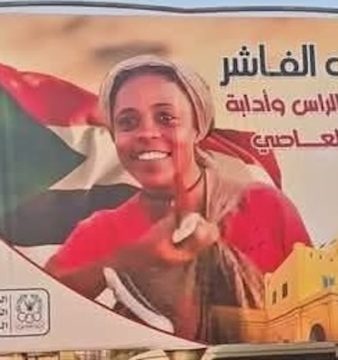Sout al Nuswan: Young Women and Local Artists Condemn Sexual and Gender-based Violence in South Sudan
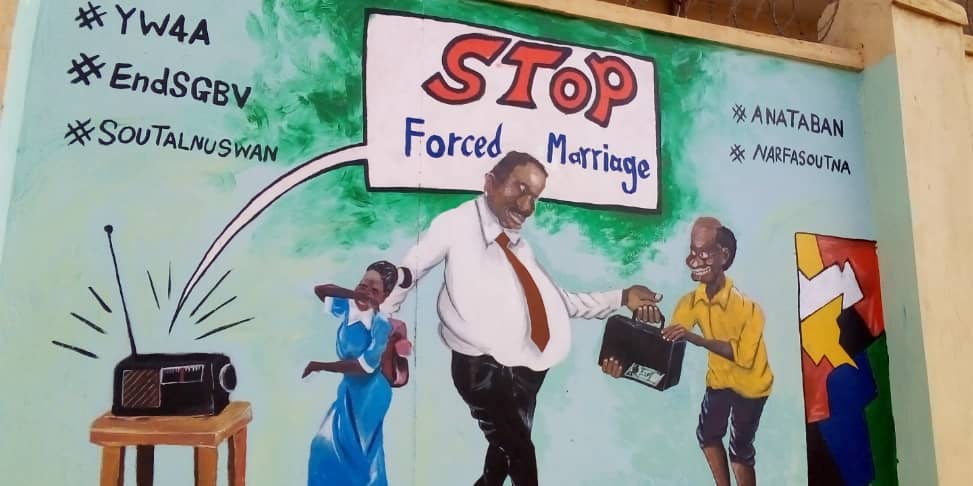
Through a mural unveiled at the ADMISS centre facing Juba’s popular Main Street, a group of young women advocates and artistsin South Sudan came together to uniquely express their frustrations with the widespread cases of sexual and gender-based violence (SGBV) in the country. The young women advocates are part of the YW4A Global Partnership that aims to defend and expand the fulfillment of young women’s rights to dignity, bodily integrity and equal participation in decision-making, through the implementation of gender-just policies and laws, and Anataban, an artist collective based in South Sudan.
The audacious art piece portrays a reluctant school-going girl in the hands of an elder man who is happily receiving a bundle of cash from another man. The words ‘stop forced marriage’ paint the backdrop. The power of this mural is further exposed through a tapestry of hand paintings surrounding this short story amongst other assertive words such as stop rape and stop sexual harassment.
A rise in rape and sexual violence
In South Sudan, around 65% of women and girls experience physical or sexual violence in their lifetime. A recent report by the Commission on Human Rights in South Sudan cited widespread rape and sexual violence between February and April 2022. The report highlights the stories of SGBV survivors, both old and young, who testified on a wide range of gross violations including rape, sexual slavery, unwanted pregnancies and physical abuse.
The ongoing conflict in the country has been the main contributor to the perilous rise in cases. This has further been exacerbated by a lack of legal structures to address SGBV. Domestic violence, for example, is primarily considered a private matter and rarely results in police intervention or justice for survivors. As such, most girls and women end up suffering in silence. UNICEF further reports that approximately 1 in 2 young women in Sudan are married off before the age of 18.
Sout al Nuswan
The partnership acknowledges a shared value between #Anataban’s #NarfaSoutna initiative under their Sout al Nuswan, meaning ‘voice of the women’, campaign and YW4A’s strategy to defend and expand the fulfillment of young women’s rights to dignity, and bodily integrity.
‘Art continuously plays a critical role in changing social norms that hinder human rights around the world. In YW4A, we are using public-facing art to speak about a norm that entrenches SGBV in South Sudan, denying young women of their sexual and reproductive rights and their basic human rights. With this mural, we hope to shift social, cultural and religious narratives, and action that transcend the traditional political spheres of influence,’ said Thabani Sibanda, lead of the YW4A Partnership.
The importance of young women’s participation in key legislative and executive organs is critical to ensuring that key issues affecting them are well represented and addressed when issues of such magnitude occur. Although the Transitional Constitution of South Sudan requires that the government should promote women’s participation in public life and their representation in the legislative organs by at least 25% as a positive measure to redress the imbalances, this has not been applied. Women still fill very few positions at the national, state and county levels.
Enactment of a comprehensive law that addresses violence against women in its totality
One of the key recommendations of the Sout al Nuswan campaign is for South Sudan to enact a comprehensive law such as the Anti-GBV Bill that addresses violence against women and girls in its totality. South Sudan tabled the Anti-GBV bill in 2019, which is aimed at reforming and consolidating norms related to gender-based violence including domestic violence, intimate partner violence, sexual violence and offenses, assault, harmful cultural practices, and child protection. It further prescribes the establishment of critical structures that would ensure the protection of victims of gender-based violence. They include an Anti-GBV committee, the Anti-GBV Fund, Anti-GBV Court, and the establishment of a one-stop Family Protection Centre.
Anataban’s community engagement coordinator, Winne Godi, said, ‘The enactment of a legal instrument such as the Anti-GBV Bill will help to erode the harmfultraditions, cultures, and fundamentalist ideologies that are propagating the rise in cases of sexual and gender-based violence in the country’.
During the unveiling event that was graced by high-level politicians, country missions, and young women advocates, Modi Enosa Mbaraza, Executive Director of YWCA in South Sudan, said, ‘Violence against women and girls must stop for sustainable peace in South Sudan and beyond. We cannot develop when girls are forced to marry against their will, and when women are beaten by their husbands in a bid to silence them. Women should be considered partners in sustainable development.’
Young Women’s Christian Association (YWCA) South Sudan’s mission is to empower women, girls, and youth to achieve justice, peace, health, human dignity, and a sustainable environment in South Sudan, and to develop their leadership skills and values to effectively participate in nation-building. Affiliated with World YWCA, its vision is to ensure a society where the human rights of women and girls and a sustainable environment are promoted, achieved, and protected through women’s leadership.
Leading the in-country implementation of YW4A, YWCA South Sudan is supporting young women to gain knowledge of their human rights and develop leadership and advocacy skills that will enable them to hold decision-makers accountable for the protection of women and girls from harmful practices and social norms. YWCA South Sudan actively addresses the consequences of civil and tribal conflict, discriminatory cultural practices, and conservative faith interpretations that have undermined the promotion of equal rights and the participation of women in private, public, and civic spaces in the country.

